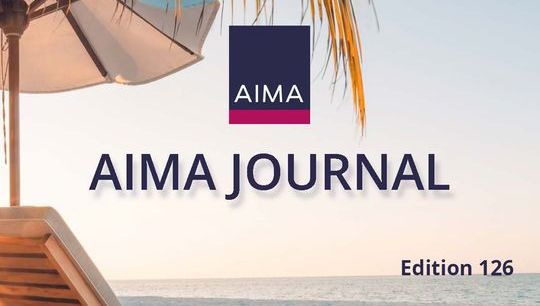Re-domiciliation of offshore funds to Hong Kong
By Fiona Fong, Deacons
Published: 20 September 2022
In November 2021, Hong Kong introduced legislation to provide for the re-domiciliation of offshore corporate funds to Hong Kong. Deacons worked on the first case, successfully bringing a private Cayman Islands corporate fund to Hong Kong as a re-domiciled open-ended fund company (OFC).
According to the Asset and Wealth Management Activities Survey 2021 (2021 Survey) issued by the Securities and Futures Commission (SFC), as of 31 March 2022, a total of 62 OFCs with 118 OFC sub-funds (including 23 ETFs with a total market capitalisation of HK$13 billion) have been set up.
This article discusses the process and benefits for existing offshore investment funds to re-domicile and register as an OFC in Hong Kong.
Legal regime
The Securities and Futures (Amendment) Ordinance 2021, which came into effect on 1 November 2021, established a new fund re-domiciliation regime whereby existing funds set up in corporate form outside Hong Kong can re-locate their registration to Hong Kong as OFCs. This regime is administered by the SFC.
Process
The process for re-domiciliation can be split into three stages:
Stage 1 (pre-submission preparation), this involves carrying out a feasibility assessment to ensure that:
- The fund has only one place of incorporation and registration. It cannot be registered in multiple jurisdictions at the same time.
- The fund is solvent, i.e. the fund will be able to pay its debts in full within 12 months from the date of the fund’s re-domiciliation application. Furthermore, there is not any petitions or orders to wind up or liquidate the fund in any place, or any appointments of receiver or liquidator. The fund is not operating under any scheme, order or compromise relating to its insolvency.
- The constitutive document of the fund and the laws of its place of incorporation do not prohibit the proposed re-domiciliation and the intended de-registration of the fund in its place of incorporation respectively.
- Approval for the proposed re-domiciliation in accordance with the constitutive document is obtained, which typically requires special resolutions of existing shareholders.
- Creditors of the fund are notified regarding its proposed re-domiciliation.
- Consent or approval pursuant to contracts entered into by the fund is obtained or waived in relation to the proposed re-domiciliation and the intended de-registration in the fund’s place of incorporation.
- All key operators of the fund can comply with the eligibility requirements of an OFC.
Stage 2 (application to the SFC – approximately 14 business days), this involves:
- Applying to the SFC for its approval on the re-domiciliation by submitting to it the requisite forms, fund directors’ confirmations, the proposed Instrument of Incorporation for the OFC and fees payable to the SFC, the Companies Registry (CR) and the Inland Revenue Department (IRD). Amongst others, basic information on the key operators (i.e. the directors, the investment manager and the custodian(s)) needs to be submitted to the SFC.
- The SFC, upon approval of the application, registering the fund as an OFC and notifying the CR of such registration as soon as reasonably practicable. Thereafter, various certificates are issued to the re-domiciled OFC, including a certificate of registration by the SFC, a certificate of re-domiciliation by the CR, and a business registration certificate by the IRD. The registration of re-domiciled OFC takes effect on the re-domiciliation date, which falls on the issue date of certificate of re-domiciliation.
- Filing with the SFC the fund’s certificate of de-registration issued in its place of incorporation within 60 days after the re-domiciliation date.
In relation to regulated mutual funds in the Cayman Islands, a certificate of de-registration can be issued by the Registrar of Companies of the Cayman Islands within a matter of days after an application is lodged. A separate application is to be made to the Cayman Islands Monetary Authority (CIMA) for cancelling the certificate of registration of the fund as a regulated mutual fund due to a transfer to another jurisdiction. For this purpose, documents to be submitted to CIMA includes the fund’s audited accounts in respect of the final financial year that it remains registered with CIMA.
Stage 3 (post-re-domiciliation), this involves:
- Updating the offering document of the fund to reflect the new OFC structure and to comply with the disclosure requirements under the Securities and Futures Ordinance, the Code on Open-Ended Fund Companies (OFC Code) and the Securities and Futures (Open-ended Fund Companies) Rules; and issuing the revised offering document to shareholders.
- Filing a copy of the offering document with the SFC as soon as reasonably practicable following its issuance.
Benefits
The move to Hong Kong is attractive to fund managers with existing offshore investment funds as there are many benefits associated with the use of OFC in Hong Kong. In particular, such benefits include:
1. Cost savings
The OFC is considered as a very cost-effective solution due to the low incorporation and maintenance fees. The re-domiciliation regime provides legal and tax certainty to overseas corporate funds which migrate to Hong Kong as OFCs.
Hong Kong stamp duty will not be triggered by the re-domiciliation of a fund to Hong Kong as there is no change in the legal personality of the fund, and therefore no transfer of assets between legal entities or change of beneficial ownership of the underlying assets of the fund.
2. OFC grant scheme
One of the major initiatives provided by the Hong Kong Government for the incorporation of OFC or re-domiciliation of an overseas corporate fund to Hong Kong is the OFC grant scheme. The grant scheme accepts applications from 10 May 2021 until 9 May 2024. According to the 2021 Survey, the total number of registered OFCs has more than quadrupled since the introduction of the OFC grant scheme.
Hong Kong-based asset managers can apply for a grant which covers up to 70% of the incorporation costs for new OFCs (or the expenses incurred by overseas corporate funds in moving to Hong Kong and registering as OFCs), subject to a cap of HK$1 million per OFC.
Under the grant scheme, a manager can establish up to three OFCs. Each OFC and its sub-funds created at the time of incorporation count as one use of the grant. Managers need to apply to the SFC under the grant scheme within three months from the date of incorporation of the OFC or the re-domiciliation date (as the case may be). The SFC processes grant scheme applications on a first-come-first-served basis.
Eligible expenses under the OFC grant scheme are expenses paid to Hong Kong-based service providers relating to the incorporation of an OFC or the re-domiciliation to Hong Kong of a non-Hong Kong corporate fund. Examples of such expenses include fees relating to legal services, audit, tax and accounting services, corporate services and regulatory compliance services.
The Government reserves the right to claw back the grant if an OFC commences winding-up or applies for termination of registration within two years from the date of the OFC’s incorporation or re-domiciliation.
3. Existing corporate identity
A fund retains its corporate identity after becoming a re-domiciled OFC in Hong Kong. Furthermore, the fund preserves the continuity of its track record. A re-domiciled OFC is not required to re-enter into contracts with its key service providers such as, the investment management agreement, the fund administration agreement and the custody agreement.
4. Convenience
Another main advantage to setting up an OFC relates to its convenience and speed.
The SFC adopts a “one-stop process” whereby applicants submit all application documents and associated fees to the SFC, and the SFC forwards the relevant paperwork to the CR to incorporate or register the OFCs. Currently, private OFCs are typically registered by the SFC within 7 to 14 business days.
5. Market access opportunities
Hong Kong is a preferred fund domicile for many fund managers and investors due to its proximity to Mainland China. Further, Hong Kong possesses a strong community of investors and professional service providers and also an active market for initial public offerings.
Key operators of an OFC
Directors
An OFC must have at least two directors who are natural persons, aged 18 or above and not an undischarged bankrupt (unless with leave of the court). At least one of the directors must be an independent director, who is not a director or employee of the custodian. The proposed appointee must have appropriate experience and expertise and be of good repute.
Custodians
Eligible custodians include banks, trustee companies, SFC licensed corporations or registered institutions for type 1 (dealing in securities) regulated activity meeting the eligibility criteria under the OFC Code. Overseas prime brokers are also eligible to act as custodians for private OFCs so long as they meet certain requirements under the SFC’s Code on Unit Trusts and Mutual Funds. Multiple custodians and sub-custodians are also permitted.
Managers
An investment manager of private OFCs is required to hold a licence with the SFC for type 9 (asset management) regulated activity; meet the relevant “fit and proper” requirements; and comply with the SFC’s Fund Manager Code of Conduct and other conduct requirements.
Investors
Information about an OFC’s shareholders is not required to be provided to the CR. An OFC’s shareholders’ register is not public information and is maintained by the OFC itself. However, the SFC and other government bodies can inspect the register and the SFC has the power to request shareholder information from the investment manager, as is the case in respect of offshore funds managed by SFC-licensed investment managers.
First re-domiciliation case
As highlighted in the 2021 Survey, the SFC recently registered the first private Cayman Islands corporate fund as a re-domiciled private OFC in Hong Kong in April 2022. Deacons acted for the investment manager in this case and is proud to have assisted with this landmark development in Hong Kong.
Conclusion
As the Hong Kong Government continues to provide initiatives to benefit the asset management industry, coupled with the above benefits brought by the re-domiciliation regime in Hong Kong, we expect that there will be an increasing trend of investment managers adopting Hong Kong-domiciled fund structures.









